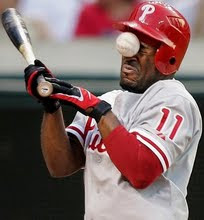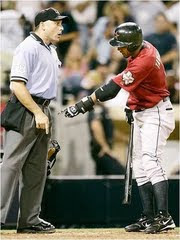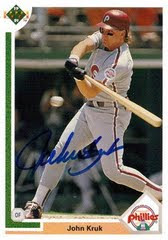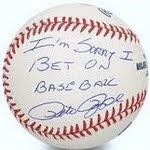Don't worry ladies and germs, I will not be giving away any spoilers. I know some GOI readers would like to read this book and haven't yet, so don't worry, I'm not ruining anything for you.
This book is about the Tampa Bay Rays (formerly Devil Rays) and follows the franchise from it's entire existence. The book is called The Extra 2% because it's essentially the reason the Rays have started winning since current owner Stuart Sternberg bought out original owner Vincent Naimoli.
On the back cover that has advanced praises for the book, Buster Olney writes:
The Tampa Bay Rays- with their ma-and-pa-sized budget- have gone head to head with baseball's two superpowers, the Yankees and the Red Sox. In the superb The Extra 2%, Jonah Keri explains how and why in a way that will remind readers of Michael Lewis' MoneyballThis book is not Moneyball. I repeat, this book is not Moneyball. Moneyball by Michael Lewis is certainly the most influential baseball book today and for my money the best as well. Moneyball was so great because it followed a team and its GM (Billy Beane and the Oakland A's) and told the reader how a small market team can be run successfully and how advanced statistics can be used to further that goal. Despite the title and several chapters in Mr. Keri's book, The Extra 2% does not really do that.
If you listen to Jonah Keri in interviews when he's promoting this book, he fully explains what this book is: It's a collection of stories surrounding the entire history of the Rays franchise. Personally, I found the best chapters the ones where Mr. Keri explains to the readers why the Rays are as successful as they are now and the strategies they employ to get there, but the book is so much more.
The book has several chapters regarding the personal life and background of current manager Joe Maddon, the three main people controlling the team right now (Stuart Sternberg, Matthew Silverman, and Andrew Friedman) as well as the original owner Vincent Naimoli and several chapters regarding Tropicana Field (the stadium where the Rays call home in St. Petersberg), how the stadium came to be and how a franchise ended up in the Tampa/St. Pete area to begin with.
The book (obviously) goes in chronological order so the beginning about how the Rays came to be and how Mr. Naimoli ran the team started off the book. Personally, I didn't care. I just wanted to get to the good stuff about how the team is currently run. To me the book started off slow but you needed the background to get to the good stuff. To me, it was like the history of fantasy baseball in another great book Fantasyland. It's interesting and cool to know and helps set the background, but overall I just didn't care about it and I just wanted to get to the good stuff (the Tout Wars game in particular in Fantasyland).
For those of you (who like me) were unaware of Vincent Naimoli's reputation as an owner, the book paints a great picture of what a dick this guy was and you see many reasons for why the Rays were so bad as long as they were. Although I will say this, I don't think the end of his regime got enough credit like it should. As bad as the Naimoli regime was (oh, and it was) they still drafted guys like Carl Crawford, Jeremy Hellickson, James Shields, B.J. Upton, Wade Davis, and Reid Brignac and traded away Victor Zambrano to the Mets for Scott Kazmir which help form the nucleus of this Rays team from 2008 to now. The book spends pages and chapters shitting on former Devil Rays GM Chuck Lamaar (and he's very candid about what a bad GM he was) yet glosses over the successes he had.
But going back to Moneyball, the one major annoyance I had with the book is the self- (hmm, what's the word I'm looking for) realization (?) of the existence of Moneyball. When you write a baseball book about how a small market baseball team overcomes the financial odds to become a powerhouse, you're book is inevitably going to be compared to Moneyball. Therefore, you have to at least mention it or realize the impact it had or something. And Jonah Keri does do that. But I felt like he did it to a fault. There were constant references to Moneyball and to Billy Beane that at first I liked, but grew weary and annoyed by it as the book progressed.
Overall, I throughly enjoyed this book an I recommend it to every baseball fan. I was a fan of Jonah Keri before this book and I'm a bigger fan of him now after this book. Obviously, Moneyball is still a better book but like I said, it's an unfair comparison. The Dark Knight was a far better movie than Batman Begins but that doesn't stop me from enjoying the first Christopher Nolan Batman movie. The stories were extremely interesting and I loved to hear how this new Rays regime worked its magic to win as many games as they had in the past three seasons.
You can purchase the book on Amazon here
One last note: Major League Baseball is a giant fuck. I know all major sports leagues are, but... fuck the MLB.







0 comments:
Post a Comment